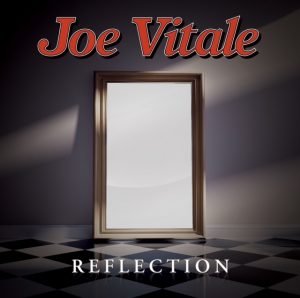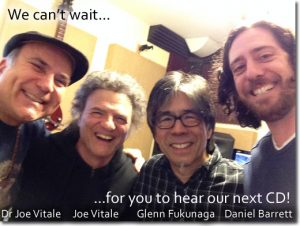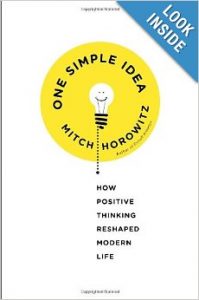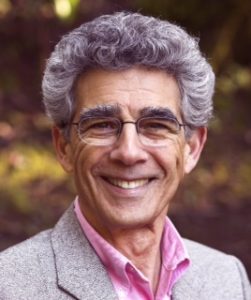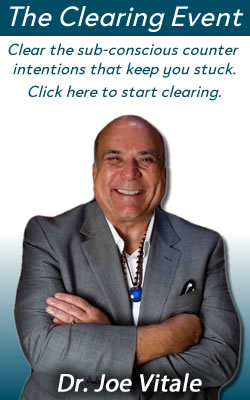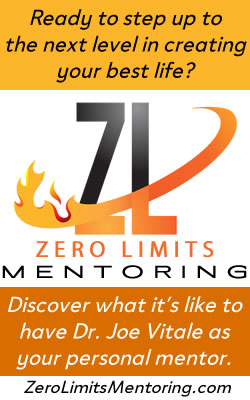Tag: loa
Mindless Sax
During the recent recording of my seventh album, titled Reflection, I mentioned the term “unconscious competence” to my band.
It refers to a mental state where you can perform without thinking; your body and mind automatically know what to do without concentration.
Since the term was new to the folks I was sharing it with, I thought it might be new to you, as well.
According to Wikipedia, the four stages of competence is a model of learning. It was created by Noel Burch in the 1970s for Gordon Training International. The four stages are —
- Unconscious incompetence – You can’t do something and aren’t aware that you can’t.
- Conscious incompetence – You can’t do something and are aware that you can’t.
- Conscious competence – You can do something but only with concentration.
- Unconscious Competence – You can do something without thought.
It’s useful to remember these steps when trying to do anything new.
For example, when you first learned how to drive a car, you were in the second stage: you can’t drive and you know you can’t. As you took lessons, you moved into the third stage.
Today, you probably drive your car without thinking about it. You are now an unconscious competent driver. That’s why you can drive and talk, listen to music, and even make a phone call. It’s second nature to you.
Driving is now automatic.
The problem in doing something new is wanting to be a master – unconsciously competent – when you don’t yet have the skills.
An example might be tossing you the keys to a huge tractor-trailer truck with 18 gears and telling you to drive it.
Good luck.
I’ve driven such rigs, and the eighteen gears are confusing.
I could urge you on, inspire you and motivate you, but if you have no practice with shifting eighteen gears, you won’t be able to do it.
No amount of pep talks will get you moving that rig.
No amount of saying “Trust your body” or “Your mind knows” or “You can do it!” will get you moving that tracker-trailer in a safe, reliable way.
Why?
You don’t yet have the skills to do so.
When I’m in the studio recording new music, I can’t jump to “unconsciously competent” in some areas yet because I haven’t learned the skills or put in the hours to make it as easy as breathing.
I have to slow down, focus, stay aware, and consciously become competent.
In time, I will move into unconscious competence as a performer.
Here’s another example:
Drummer Joe Vitale – the Rock and Roll Hall of Fame legend who plays with Joe Walsh, Neil Young and other icons – told me he can play the drums in his sleep. He is unconsciously competent in that area.
But he is not quite so certain on the keyboards.
There, he is a consciously competent performer.
He can do it but, as he told me, it takes concentration.
When we were recording, someone mentioned a baritone saxophone.
A what?
We called up the band Morphine, which leans on a bari sax to create its haunting sound, and listened.
I was instantly in love with the gutsy, sexy music.
I then looked at baritone saxes online.
Talk about intimidating.
Put one in my hands and I wouldn’t know how to hold it, let alone play it.
Of course, given enough time, lessons, and focused practice, I’d learn my way around that instrument.
So here’s how the four stages of learning look in this case:
- Unconscious incompetence – I never even heard of a baritone sax.
- Conscious incompetence – I know what it is but know I can’t play it.
- Conscious competence – If I took lessons and practiced, I could play it with focused awareness.
- Unconscious Competence – Given enough practice, I could pick it up and play it without thinking.
What did I do next?
I knew I loved the sound of the bari sax, so I found an Austin player and hired him. He came to the studio and added sultry spice to one of my songs. While I had his ear, I asked all kinds of questions about the sax and how to buy one, play one, etc.
I then contacted the sax instructor he told me was the best one.
I then ordered the book he told me to get: The Devil’s Horn.
And I then went online and researched vintage baritone saxophones, as I knew I wanted an investment grade instrument.
Do you see how this works?
I went from being oblivious about the bari sax (unconscious incompetence) to the second stage (conscious incompetence) and now moving into stage three (conscious competence). As long as I maintain lessons and practice, I can — given enough time — move into the fourth stage: Unconscious Competence, or “Mindless Sax.” (Couldn’t help myself). 🙂
But I couldn’t just pick up the sax and play!
All of this is a reminder to be easy with yourself.
As you learn any new skill, you need to relax, focus, absorb and keep practicing.
You can master virtually any skill, but it takes time, awareness, intent and discipline.
Just under three years ago, I couldn’t sing, play guitar, write songs or music, or record anything.
Today I have seven albums.
Seven!
The payoff of patience and practice is great success.
And you’re worth it.
Ao Akua,
joe
PS – My albums are described at these sites:
http://www.GetUpandStrut.com
http://www.HealingMojoMusic.com
http://www.AligningtoZero.info (a bestseller)
http://www.TheHealingSong.com
http://www.HealingRockMusic.com
http://www.AtZeroMusic.com (NEW)
Note: Album number seven is called Reflection. I’ll let you know when it’s available. 🙂
Law of Attraction Secret
According to Mitch Horowitz, in his new book, One Simple Idea: How Positive Thinking Reshaped Modern Life, the phrase “Law of Attraction” was first used in 1855 by a trance medium named Andrew Jackson Davis.
A trance medium?
That was news to me.
I have an entire library of vintage New Thought, metaphysical, and spiritual books, yet never heard of Davis.
Apparently Davis went into trances and dictated metaphysical messages. His medium side channeled a large body of work, including a six-volume set of spiritual laws called, The Great Harmonia.
In volume four, Davis used the term “Law of Attraction.” But Davis meant the law to refer to the kinds of spirits you attracted to yourself after you died and went to the other side. His term had nothing to do with the cause-and-effect law we think of today.
It was in 1892 that the law as we know it began to take shape.
Prentice Mulford, an early New Thought author, mentioned it in his famous book, Your Forces, And How to Use Them.
In 1897, Ralph Waldo Trine used the term in his classic book, In Tune with the Infinite.
And Helen Wilmans used the term in her 1899 book, Conquest of Poverty.
But the biggest push in getting “Law of Attraction” into mainstream thinking came in 1902, when William Walker Atkinson devoted an entire chapter to the subject in his book, The Law of the New Thought.
As you can see, the term has been around a long time.
Of course, the core LOA (Law of Attraction) concept of “your thoughts create reality” goes all the way back to Buddha, Jesus, and ancient cultures.
Only the phrase “Law of Attraction” is relatively new – at least from 1855, if Mitch Horowitz’s research is accurate (and I believe it is.)
All of this reading and research caused me to go back and re-read some of my favorite LOA authors, to be reminded of their stories and secrets.
One of them is Brown Landone, a prolific author who lived almost 100 years and wrote such gems as The Success Process and How to Turn Your Desires and Ideals into Realities.
In my 1927 copy of The Success Process, Landone uses chapter three to explain “The ‘Doing Process’ Which Always Succeeds.”
I smiled to see how much focus he put on taking action, one of the most overlooked steps in many modern Law of Attraction groupies.
But Landone spelled out that the kind of action you need to take is what he called “idealized doing.”
For him, you began with “vivid imagining.”
That meant using all your senses to experience the end result of what you wanted to attract.
But the next step was to envision the process of getting there.
While you may not know all the steps needed to attract or achieve a specific intention, the more you could use your senses to see the ideal action to take, the easier it would be to guarantee success.
Landone wrote –
“Your ideal of the end you desire to attain is the ‘star’ to which you should hitch your wagon of attainment. But, very much depends upon the way in which you do the hitching. Idealized doing always succeed.”
I love the fact that Law of Attraction has gone mainstream, thanks to movies and books like The Secret, and my own books such as The Attractor Factor, but I’m often dismayed that people have a superficial understanding of it.
For example, too many LOA practicioners think all they have to do is sit and visualize and what they want will “just appear.”
Well, it might just appear.
The car might appear in your driveway.
The love of your life might ring your doorbell.
But more often than not, you have to help the process along with inspired action.
Go to a car dealership.
Visit a matching service.
Do something.
Another example of an LOA fallacy is believing you get what you consciously think.
In reality, you attract what you unconsciously believe.
In other words, you can consciously believe, visualize and affirm all you want, but if you unconsciously believe something different, you won’t get your intention.
I’ve said it many times —
An unconscious counter-intention will always veto a conscious intention.
You can affirm “Money is coming to me” all day but if you unconsciously believe “Money is bad,” then you will not attract more money, or if you do, you will get rid of it fast.
Your unconscious is far more powerful than your conscious. You have to work with it to clearly and quickly manifest the results you prefer.
These points are just minor examples of the depth behind the Law of Attraction that most people aren’t at all aware of yet.
What can you do to understand LOA and use it correctly?
In my opinion, nothing is more powerful than having your own Miracles Coach.
Meanwhile, if you’ve tried to harness the Law of Attraction’s power in your own life to attract money (or anything else) and feel you’ve “failed,” then you need to see this all-new video from me http://428155.vitalesecrets.com?subid=missinglink
Expect Miracles.
Ao Akua,
Joe
PS — Some say the brief video you’ll see at this link is the most eye-opening they’ve EVER seen. Others say they just love the vest I’m wearing. http://428155.vitalesecrets.com?subid=missinglink What do you think?
Where's the Book?
Talk about emotion.
The long awaited sequel to my book Zero Limits is out and boy is it pushing people’s buttons.
At Zero became a bestseller the first week of January and is now in the hands of lots of people.
Just like with the first book, At Zero is triggering anger in some people and awakening in others.
But as I explain in the new book, what you experience is due to your own belief filters, not to the book itself.
For example —
One person says, “There’s nothing new in the book and it’s not real ho’oponopono at all.”
Yet another person reads the very same book (!) and declares, “Great new insights, advanced clearing methods, and a revelation about authentic ho’oponopono. Loved it!”
Here’s another —
One person says, “He just sells in this book.”
Yet another person reads the exact same book (!) and says, “He doesn’t sell at all in this one.”
And another —
“Joe tells stories of his struggles but doesn’t show how the practice of ho’oponopono helped him get out of them.”
Yet another person reading the very same book (!) says, “Joe shares incredible stories of his own tough times and reveals how his practice caused the problems to disappear like miracles.”
Another says —
“Joe puts down Dr. Hew Len”
Yet another person reads the exact same book (!) and says, “Joe compares Dr. Hew Len to Jesus.”
Gee, which is true?
Again, it’s not the book, but the person reading it.
You bring your own mindset to the pages.
Just like in real life. 🙂
I could show you all the expert praise for At Zero, such as —
“Joe’s new book was just as I knew it would be – FABULOUS!
The riveting stories and enlightening insights lifted my
spirits and filled my soul with love. This is indeed a path
to miracles!”
– Janet Bray Attwood, co/author NY Times bestseller,
The Passion Test
And —
“This book ought to be a movie. A masterpiece of story
telling and a revelation on how the Hawaiian healing
system of Ho’oponopono really works.”
~ Barnet Bain, movie producer, “What Dreams May Come”
and “The Celestine Prophecy”
And —
“In ‘At Zero’, Dr. Joe Vitale shares the catalyst of his
own awakening. He is vulnerable, insightful and shares
authentic Ho’oponopono secrets that are empowering and
inspiring. If you want to get to the state of zero, where
there are no limiting beliefs, I highly suggest you read
this book.”
– Dr. Steve G. Jones, Clinical Hypnotherapist
And –
“With ‘Zero Limits’, Joe Vitale introduced the world to
the incredible healing system of Ho’oponopono. Now he’s
taking it all to the next level, going deeper and revealing
the real essence and magic behind these ancient secrets.
A must read!”
– Nick Ortner, NY Times Best-Selling Author of
The Tapping Solution
— but As E.M. Forster once wrote –
“A book is a mirror; if an ass peers into it, you can’t expect an apostle to peer out.”
I think E.M. Forster was a tad harsh, but his quote points to a truth that is in the very book people are reading:
You see what you are.
In At Zero, I explain that the book isn’t even real.
It is in fact a projection created from your mental programs.
What you see in the book is in you, not in the book.
This insight is at the very heart of ho’oponopono and my new book.
It’s the fact that you (and I) have programs (beliefs), and those programs need cleaned up in order to see any mutually agreed upon reality.
The best thing to do is find out for yourself why At Zero is so powerful.
If you want to see what all the fuss is about, and if you dare to face your own beliefs, then go see –
Get the book today and get a lot of freebies.
See the site for details.
Expect Miracles.
Ao Akua,
PS — Yes, At Zero is available as a hardcover, Kindle ebook, and/or audio book, as well. All are being offered via Amazon. Go see – http://www.atzerobook.com
Beliefs Blocking Wealth
The following is a guest post by my friend and mentor Morty Lefkoe. Morty struggled to make lasting changes in his life for 45 years until he figured out a way to unlearn the beliefs that held him back. He turned what he discovered into a repeatable process that he used to help others—including family, friends, and eventually 150,000 individuals and over 50 corporations—unlearn their limiting beliefs. He shares what he discovered with readers like you in his weekly blog at http://www.mortylefkoe.com
How negative beliefs will keep you from achieving wealth
by Morty Lefkoe
About a year ago Joe Vitale and I were having dinner at my home in Northern California. At some point we started discussing the Law of Attraction (LOA). Both of us agreed that no matter what we felt, what we focused on, and what we did, if we had a bunch of limiting beliefs serving as barriers to achieving personal success—whether you measure that by money, position, or a general sense or happiness—it would be difficult if not impossible to get what we wanted.
Let me explain why.
Why beliefs have the power they do
A belief is a statement about reality that we feel is “the truth.” Our beliefs seem like facts to us. So if you believe life is difficult, relationships don’t work, or money is hard to get, for you, those are facts about the world. You will deal with life as if they are as real as the device on which you are reading the words.
I conducted a survey of my mailing list a few years ago and asked them to name the six most common beliefs that could keep them from achieving financial abundance. Here is how they answered (the most important one first):
Six of the most damaging beliefs about money
| |
| * You have to work hard to make money. | |
| * I’ll never have enough money. | |
| * Money is a struggle. | |
| * I’m not deserving. | |
| * There is never enough money. | |
| * Life is difficult. | |
If you really thought these six statements were accurate descriptions of reality, can you see how you would be blocked in your ability to create financial abundance in your life?
You would have to work very hard all the time (which is not really a good way to enjoy your life) and, if you didn’t, you wouldn’t expect to make money.
How motivated could you be to make money if you really were convinced you would never have enough? And if somehow you did have “enough,” there would be the constant fear that you would lose it, because you don’t expect to have enough.
You would expect to struggle all the time to make money. And if you were unwilling to struggle all the time, you wouldn’t even try to make money.
The fourth belief is an interesting one because it is a self-esteem belief, not a belief directly related to money. If you really believe that you aren’t deserving, you will unconsciously resist getting what you want. And like the second belief, if somehow you did get some money, you probably would find some way to lose it because you wouldn’t deserve to have it.
If you really believe there is never enough money, you will never be satisfied with what you have. You will always experience needing more money no matter how much you have. This dooms you to dissatisfaction no matter how much wealth you accumulate.
The final belief isn’t even about making money or achieving financial abundance as such; it is a belief about life, one that is very common. If you expect life to be difficult, it will be.
Self-esteem beliefs can also sabotage your ability to accumulate wealth
These are only the major beliefs specifically relating to achieving abundance. It should be clear that self-esteem beliefs could affect your financial situation—beliefs like I’m not good enough, I’m inadequate, I’m not capable, I’m not competent, I’m powerless, and I’ll never get what I want.
Is it real now that your beliefs could severely sabotage your ability to earn money and accumulate wealth? In other words, personal success will probably always be just outside your reach.
Is eliminating beliefs sufficient?
But what happens if you eliminate all the beliefs that could interfere with your accumulating money? Will that insure your financial security? Unfortunate, the answer is, no.
If you have a behavior you want to stop, such as procrastination, or a negative feeling, such as anxiety, if you eliminate all the beliefs that cause the behavior or the emotion, they will permanently stop. Guaranteed.
But attaining wealth is not a behavior or a feeling; it is something that has to happen in reality. And, although getting rid of limiting beliefs can increase the possibility of something happening in reality, eliminating beliefs will not insure it.
There are many factors determining your ability to accumulate wealth
In order to earn money you have to offer people something of value they are willing to pay for. If you have nothing to offer, or if your price is higher than what people think the product or service is worth, or if your expenses are higher than your revenues, etc. you will never earn much money.
If you want to work for someone else and don’t have the skills that employers are looking for, or if you aren’t particular effective at what you do, or if you are late in doing what you are asked to do, etc., the chance of getting or keeping a job, much less a promotion and raise, is not very good.
So getting money depends on more than eliminating beliefs, as important as that is. It is a precondition, but not sufficient in itself. You also need an effective strategy that is implemented well.
Eliminating beliefs can help you find the best course of action
Getting rid of beliefs will not only remove barriers, as discussed earlier, it also creates possibilities for taking action that significantly improves your chances of doing what needs to be done to make money.
Let me explain how eliminating beliefs creates new possibilities that didn’t exist before. Imagine you had the beliefs: I’m not loveable, relationships don’t work, and men/women can’t be trusted. If you really believed that is the way reality is, what would be the possibility for you to have a good, nurturing, loving, long-term relationship? Slim to nil, right?
Now let’s imagine that you totally eliminated those three and a few other related beliefs. Can you see that without changing anything else about you or reality, you now have possibilities for a good, nurturing, loving, long-term relationship that you didn’t have before.
How eliminating beliefs creates new possibilities
My wife Shelly, a Certified Lefkoe Method Facilitator who has helped thousands of clients eliminate the beliefs that stop them, tells the following story about personal success..
A client called her one day and told Shelly that she and several friends had just attended T. Harv Eker’s “Millionaire Mind” workshop, after which she purchased the summerhouse of her dreams. She was so excited that she just had to tell Shelly that what she had learned in the course had enabled her to do it.
Shelly pulled out the client’s file and read her some of the beliefs she had recently eliminated: Money is scarce and hard to get. Mistakes and failures are bad. If I make a mistake and fail I’ll be rejected. You have to save your money for a rainy day. Taking risks with money is dangerous. I’m not deserving.
Shelly then asked her: “Regardless of what you learned in the course, do you think you would have purchased the house had you not eliminated these beliefs first.”
There was silence on the other end of the phone. Finally the client responded: “Probably not.”
Shelly then asked: “What did your friends buy or do to increase their income after they finished the course?”
The client answered slowly: “Nothing.”
In other words, you need the possibility for something to happen before it can happen. When you create possibilities, you see things you can do that you never saw before. And eliminating beliefs is the best way to create new possibilities.
So what do I do to accumulate wealth?
Although getting rid of beliefs is not sufficient to make money, it certainly is one of the most important things you can do if you ever hope to accumulate wealth. And if you take advantage of the possibilities that get created when the appropriate beliefs are eliminated, your chances of personal success and financial abundance increase exponentially.
What are you waiting for?
Copyright © 2014 Morty Lefkoe
How Deep Can You Go?
“I love your book.”
“Which one?” I asked.
I was talking to my lawn care guy.
“The new one, the one called At Zero, the one where you explained the history and inner secrets of that Hawaiian thing I can’t pronounce.”
“You mean ho’oponopono?” I asked.
“Yea. That one. I loved your book Zero Limits but this new one blew the lid off my mind.”
“What did you like about the new book?”
“You really showed me how deep you go in using the method,” he explained. “I was amazed to read about your own dark night of the soul and how you went so deep to unravel how you attracted it and how you got out of it.”
“Thank you.”
“Most people think they are working on themselves when they aren’t; not really. Your stories reveal how to dig into the heart of change.”
“I appreciate that.”
“Plus I didn’t know I was doing ho’opo wrong,” he confessed. “Your book really opened my eyes.”
“Yea, a lot of people don’t get how the method actually works to bring on miracles.”
“I also didn’t know that that ho’opono-thing came from such dark beginnings.”
“Most people don’t,” I said.
“The final secret that you reveal took me a while to get,” he said. “I almost missed it until I realized you spelled it out in this new book and my mind wasn’t letting me see it.”
“Our minds are tricksters,” I said.
“Well, I loved this new book At Zero and sure hope you sell a lot of them as it can really help people.”
“Thank you again.”
“Well, I better finish your lawn.”
Ao Akua,
PS — Here’s what the experts say —
“Joe’s new book was just as I knew it would be – FABULOUS!
The riveting stories and enlightening insights lifted my
spirits and filled my soul with love. This is indeed a path
to miracles!”
– Janet Bray Attwood, co/author NY Times bestseller,
The Passion Test
“This book ought to be a movie. A masterpiece of story
telling and a revelation on how the Hawaiian healing
system of Ho’oponopono really works.”
~ Barnet Bain, movie producer, “What Dreams May Come”
and “The Celestine Prophecy”
“In ‘At Zero’, Dr. Joe Vitale shares the catalyst of his
own awakening. He is vulnerable, insightful and shares
authentic Ho’oponopono secrets that are empowering and
inspiring. If you want to get to the state of zero, where
there are no limiting beliefs, I highly suggest you read
this book.”
– Dr. Steve G. Jones, Clinical Hypnotherapist
Go see http://www.atzerobook.com

